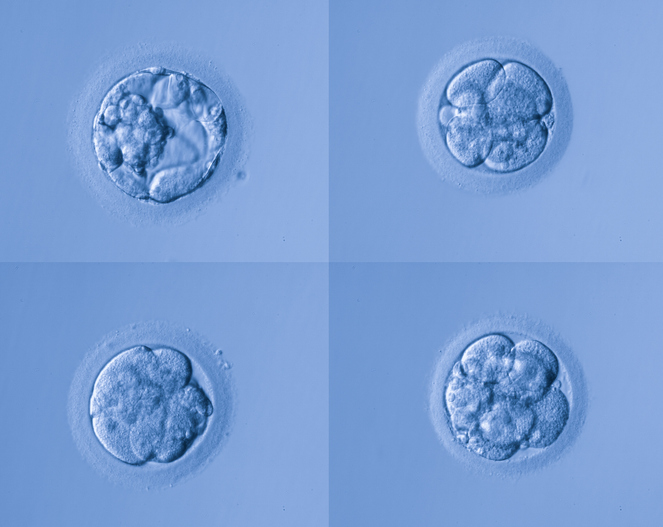

Egg donation is a powerful way to help others build a family. For those who are considering donating their eggs, the process can be a complex and emotional one. There are many considerations to take into account, from the physical demands of the egg retrieval process to the legal and ethical implications of donation.
At Cofertility, we have developed a unique program called Split, which allows qualified women to freeze their eggs for free when donating half of the eggs retrieved to a family who can't otherwise conceive. We think it’s a win-win. In this article, we'll explore the best way to donate your eggs, with a focus on the benefits of the Split program and the steps involved in becoming an egg donor.
Why choose Cofertility's Split Program?
The Split program offers a unique opportunity for women who are interested in egg donation. By donating half of their retrieved eggs, qualified donors can freeze their remaining eggs for free. This means that women who are interested in preserving their fertility for the future can do so without incurring the high costs associated with egg freezing. Additionally, by donating half of their eggs, donors can make a real difference in the lives of families that could not otherwise conceive. At Cofertility, we believe that everyone should have the opportunity to build a family, and the Split program is one way we are working to make that a reality.
The benefits of egg sharing
For many women, the decision to freeze and donate their eggs is a deeply personal one. However, there are many potential benefits to egg donation, both for the donor and for the recipient. Some of the most common benefits of egg sharing include:
- Helping others build a family: By donating your eggs, you can give someone else the chance to experience the joy of parenthood.
- Access to advanced fertility treatments: Donors in our Split program get to keep half of their eggs retrieved entirely for free. We also pay for 10 years of storage, so you don’t have to worry about any expenses for a decade.
- Learn more about your body and reproductive health: The process includes a medical screening that will tell you more about your fertility, including your ovarian reserve.
- Personal growth: Many egg donors report feeling a sense of personal growth and fulfillment from the experience.
The vast majority of people who participate in an egg sharing program are happy they did it. In fact, one study found that 83.3% would donate again and only 2.1% regretted their decision to participate.
The families you could help
Egg donation can make a world of difference to individuals and couples who are struggling to conceive. Infertility affects millions of people around the world, and egg donation can provide hope and a pathway to parenthood.
In addition to those struggling with infertility, there are other groups of individuals who may need the help of an egg donor. For example, cancer survivors who have undergone chemotherapy or radiation therapy may have reduced fertility or premature menopause. By using donor eggs in IVF, these individuals can have a chance at conceiving and starting a family.
Additionally, LGBTQ+ couples or individuals who wish to start a family may need the help of an egg donor. We work with a lot of gay dads, for instance, who need a donor egg to create an embryo that can be carried by a surrogate. By donating your eggs, you have the potential to help individuals and families of all kinds achieve their dream of starting a family.
The egg donation process
If you are considering donating your eggs, it is important to understand the steps involved in the process. At Cofertility, we have developed a comprehensive egg sharing program that is designed to support donors throughout the process. Here are the key steps involved in egg donation:
- Apply to become a donor: The first step in the egg donation process is to apply to become a donor. At Cofertility, we require donors to meet certain eligibility criteria, such as being between the ages of 21 and 34, having a healthy BMI, and being a non-smoker.
- Get matched: Once you are pre-approved to become an egg donor, your profile will become available for our intended parents to see. Some members might be matched within a matter of days, while for others it can take much longer.
- Screening and testing: Once you match, you will undergo a series of screening tests to ensure that you are in good health for egg donation. These tests may include bloodwork, a physical exam, and a psychological evaluation.
- Contract: You’ll work with a lawyer who will represent your best interests in the egg donation agreement. You can work with a lawyer in our network or find your own. Either way, we’ll cover the cost.
- Hormone stimulation: In order to increase the number of eggs available for retrieval, donors must undergo a series of hormone injections to stimulate the ovaries.
- Egg retrieval: When the eggs are mature, they are retrieved during a minimally invasive procedure under sedation.
- Egg storage: After the egg retrieval, your portion of the eggs will be immediately frozen and stored. You’ll have 10 years of storage free, and you can retrieve your eggs at any time!
Bottom line
Egg sharing is a powerful way to make a difference in the lives of others while also taking control of your own fertility. It offers a chance for personal growth and fulfillment, and by donating your eggs, you can help a wide range of families, from those struggling with infertility to cancer survivors and LGBTQ+ families. At Cofertility, we are dedicated to making the egg donation process as seamless and rewarding as possible, with a supportive team of experts to guide you every step of the way. Join us in making a difference in the world, one egg at a time.
Read more:
- Are There Any Risks Associated with Egg Donation?
- What AMH Level Do I Need to Freeze My Eggs?
- Do’s and Don’ts for Egg Freezing: Alcohol, Baths, Exercise, and More
Cofertility is in the “family” business, striving to make egg freezing and third-party reproduction more human-centered and accessible for all. Our Freeze by Co program allows you to freeze your eggs for free, when you give half to a family who can't otherwise conceive.










